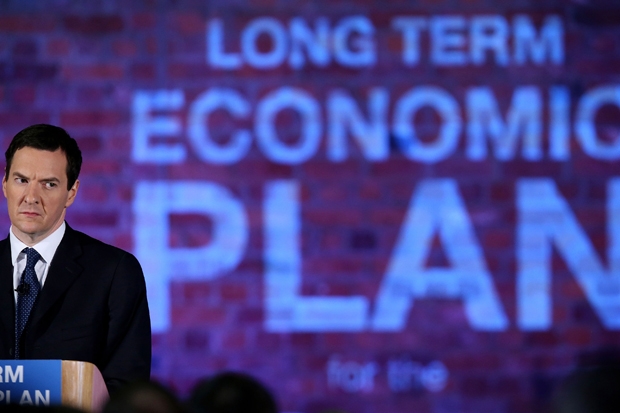These days George Osborne is rarely seen in public without a hard hat and a hi-vis jacket. But he used to take pride in being recognised as a political insider through and through — a member of the guild of politicians, in his own phrase. He revelled in writing detailed articles about the lessons Westminster could learn from American politics.
Several of these were written for The Spectator when Boris Johnson was the editor, which shows how far back the relationship between the Chancellor and the Mayor of London goes. (Osborne was at Oxford as the same time as Johnson’s younger brother Jo, now an MP and the head of the Downing Street policy unit). One of them, written in 2004, set out what Osborne thought were the ‘13 keys to No. 10’. This was based on an academic model for predicting US presidential elections results. Osborne claimed that if any government held six of these keys or more, it would be re-elected.
The first test was: ‘Real per capita economic growth during the parliament equals or exceeds the mean growth during the previous two parliaments.’ The coalition is currently on course to meet this target — just. Between 2001 and 2005, GDP per capita grew by 9.7 per cent. But between 2005 and 2010 it shrank by 0.6 per cent. In this parliament so far, it has risen by 4.2 per cent and will have increased, if the Office for Budget Responsibility’s forecasts are correct, by 5.5 per cent by polling day.
Osborne believed the economy to be of such importance that it warranted a second test: ‘The economy is not in recession during the election campaign.’ The government will get another tick for this, although growth seems to have slowed recently. Set against this, however, inflation is strikingly low at 0.5








Comments
Join the debate for just £1 a month
Be part of the conversation with other Spectator readers by getting your first three months for £3.
UNLOCK ACCESS Just £1 a monthAlready a subscriber? Log in